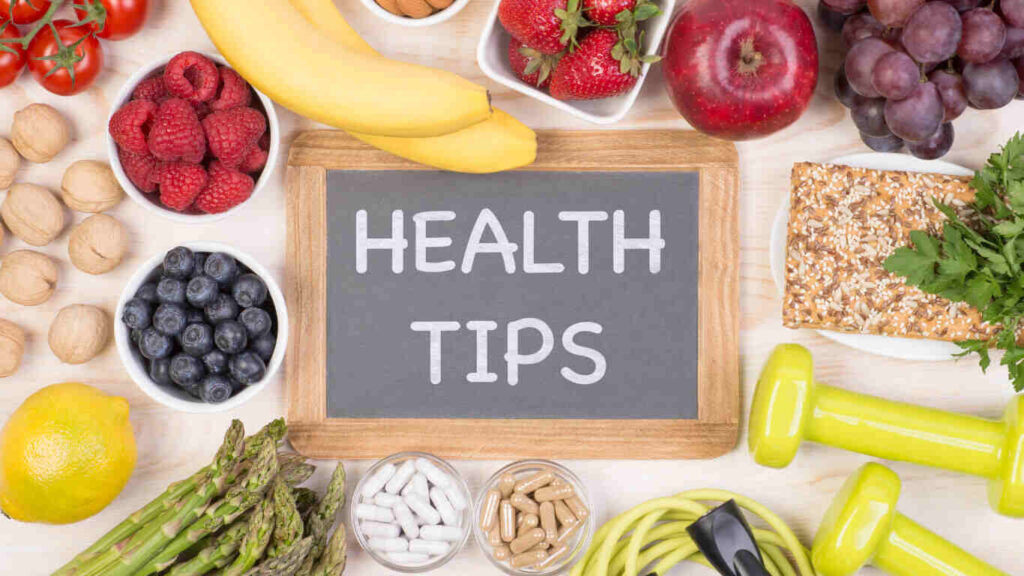Lymphedema Diet Tips: 10 Powerful Foods to Help Manage Swelling
Living with lymphedema can be a challenge, but the right dietary choices can make a world of difference in managing symptoms like swelling. From anti-inflammatory foods to hydration strategies, a thoughtful approach to nutrition can complement your overall treatment plan. Let’s dive into how a lymphedema diet can help improve your quality of life and support the lymphatic system.
What is lymphedema, and how can diet help?
Understanding lymphedema: Primary vs. secondary
Lymphedema is a condition marked by the accumulation of lymphatic fluid in tissues, leading to swelling in areas like the arm or leg. It can be classified as either primary or secondary lymphedema.
- Primary lymphedema is rare and typically develops due to genetic mutations that affect the lymphatic system.
- Secondary lymphedema, on the other hand, often occurs after trauma or medical procedures like cancer treatment, particularly after the removal of or damage to lymph nodes during breast cancer surgery.
Regardless of its type, lymphedema occurs when the lymphatic system cannot drain lymph fluid efficiently, causing localized swelling.
The role of nutrition in lymphedema management
A tailored diet for lymphedema is important in controlling inflammation and promoting lymphatic drainage. A healthy diet rich in anti-inflammatory foods can help reduce the discomfort caused by swelling. It also contributes to maintaining a healthy body weight, which is crucial since excess weight can exacerbate symptoms.
How diet affects lymphatic fluid drainage
Certain nutrients directly impact the function of the lymphatic system. For instance, staying hydrated improves lymphatic drainage, while antioxidants help combat inflammation, contributing to swelling and lymphedema. Proper nutrition can also boost your overall health, essential for managing a chronic condition like lymphedema.
Which foods should I include in my lymphedema diet?
Lean proteins and their importance
Including lean protein in your meals is vital for maintaining muscle mass and supporting tissue repair, especially for lymphedema patients. Foods like chicken, turkey, eggs, and tofu are excellent sources of protein that can help reduce swelling and keep your body strong.
- Ensure you’re getting enough protein to help support the body’s healing processes.
- For vegetarians, options like lentils, beans, and quinoa are also beneficial and rich in protein.
Anti-inflammatory fruits and vegetables
Fruits and vegetables with anti-inflammatory properties are a cornerstone of any lymphedema diet. Think of colorful produce like berries, leafy greens, sweet potatoes, and bell peppers. These foods are delicious and packed with nutrients that help reduce lymphedema symptoms.
- Adding anti-inflammatory fruits and vegetables like kale, spinach, and blueberries can improve lymphatic drainage.
- Aim for various colors on your plate to maximize the intake of antioxidants.
Whole foods rich in antioxidants
Whole foods such as nuts, seeds, and whole grains are rich in antioxidants, which combat free radicals and reduce inflammation. These foods also provide long-lasting energy and support overall health.
- Almonds, chia seeds, and oats are great choices for snacks or breakfast.
- Incorporate flaxseeds or walnuts into your meals to boost omega-3 fatty acids, which have anti-inflammatory properties.
Are there any foods to avoid with lymphedema?
High-sodium processed foods
Processed food often contains high sodium levels, which can worsen swelling by causing water retention. To help manage your lymphedema symptoms, avoid items like canned soups, salty snacks, and fast food.
- Check nutrition labels for hidden sodium content.
- Opt for fresh or minimally processed ingredients whenever possible.
Excess sugar and its impact on inflammation
Excessive sugar intake can lead to increased inflammation, making it harder to manage lymphedema. Limiting sugary beverages, desserts, and refined carbs can significantly improve symptoms.
- Choose natural sweeteners like honey or stevia if you need a hint of sweetness.
- Reduce the consumption of sugary drinks like sodas and energy drinks.
Unhealthy fats that may worsen swelling
Avoid trans fats and saturated fats commonly found in fried foods and baked goods. These types of foods can exacerbate inflammation and make lymphedema worse.
- Replace unhealthy fats with healthy options like olive oil or avocado.
- Limit fried and greasy foods in your diet.
How can I maintain a healthy body weight with lymphedema?
Balancing calorie intake and physical activity
Maintaining a healthy body weight is essential for managing lymphedema. Excess weight puts additional pressure on the lymphatic system, hindering lymphatic drainage and making it more difficult to treat swelling.
- Combine a balanced diet with regular physical activity to manage your body weight.
- Low-impact exercises like swimming or walking complement your dietary efforts.
Portion control strategies for lymphedema patients
Portion control is key to preventing overeating and effectively managing one’s body weight. Use smaller plates, measure servings, and focus on nutrient-dense foods to avoid unnecessary calorie intake.
- Mindful eating practices can help you recognize when you’re full.
- Preparing meals at home allows you to control ingredients and portion sizes.
What are some diet recommendations for cancer survivors with lymphedema?
Nutritional needs after cancer treatment
Cancer survivors with lymphedema often face unique nutritional challenges. Consuming nutrient-rich foods that are easy to digest can support recovery and improve lymphedema management.
- Focus on lean proteins, whole grains, and fresh fruits and vegetables.
- Stay hydrated to enhance the body’s natural healing processes.
Foods that may help reduce the risk of lymphedema
Certain foods, like those high in antioxidants, can reduce inflammation and support the lymphatic system. Include green tea, citrus fruits, and broccoli in your diet to help strengthen your immune system and reduce the risk of lymphedema.
How can I create a personalized lymphedema diet plan?
Working with a registered dietitian
A registered dietitian can help you develop a personalized diet plan that aligns with your needs and lifestyle. They can also provide tailored advice for managing lymphedema through food choices.
- Discuss any dietary restrictions or preferences you have.
- Regular follow-ups ensure that the plan evolves with your progress.
Incorporating anti-inflammatory foods into daily meals
Planning meals that prioritize anti-inflammatory foods can greatly affect how you feel. To combat inflammation, include ingredients like turmeric, ginger, and green leafy vegetables in your daily meals.
- Try recipes that deliciously incorporate these ingredients.
- Meal prepping can make it easier to stick to your diet plan.
Can certain drinks help with lymphedema swelling?
Hydration and its impact on lymphatic drainage
Staying hydrated is crucial for maintaining proper lymphatic drainage. Drinking enough water throughout the day helps flush toxins from the body and reduces the swelling associated with lymphedema.
- Aim for at least 8-10 glasses of water daily.
- Include hydrating foods like cucumbers and watermelon in your diet.
Herbal teas and their potential benefits
Certain herbal teas, like dandelion or ginger tea, have properties that may help reduce inflammation and promote lymphatic drainage. Adding these teas to your routine can complement your lymphedema management efforts.
- Enjoy a warm cup of herbal tea in the evening to relax and support your health.
- Experiment with different blends to find what works best for you.
Key Takeaways
- Lymphedema can be managed more effectively with a thoughtful, anti-inflammatory diet.
- Include lean protein, anti-inflammatory fruits and vegetables, and whole foods rich in antioxidants.
- Avoid high-sodium, sugary, and unhealthy fat-laden foods that can worsen swelling.
- Maintaining a healthy weight through portion control and physical activity is key.
- Working with a registered dietitian can help create a personalized plan tailored to your needs.
- Staying hydrated and exploring herbal teas can further enhance lymphatic drainage.
FAQs
Can a ketogenic diet help with lymphedema?
A ketogenic diet focuses on high fat, moderate protein, and low carbs. While some patients find it beneficial for weight loss, consult a healthcare provider before starting this diet for lymphedema management.
Are there specific foods that can cure lymphedema?
Lymphedema has no definitive cure, but a diet rich in anti-inflammatory foods can significantly reduce symptoms and improve your quality of life.
How do cancer and lymphedema relate to dietary needs?
For cancer survivors with lymphedema, proper nutrition supports recovery and reduces the risk of developing lymphedema. Prioritize nutrient-dense, easy-to-digest foods and stay hydrated.
What are the symptoms of lymphedema that diet can help with?
A healthy diet focused on anti-inflammatory and hydrating foods can alleviate symptoms like swelling, heaviness in the affected area, and discomfort.





